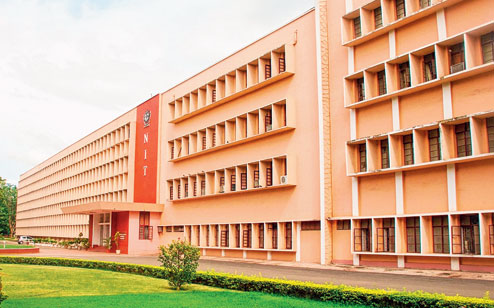
New Delhi, May 13: Government fund cuts have prompted a National Institute of Technology to dilute its research fellowship programme, the decision by the "institute of national importance" belying the Centre's assurances of promoting research at public institutions.
NIT Rourkela has taken two decisions to offset a reduced funds flow of Rs 35-40 crore per quarter, down from the earlier Rs 50 crore, a consequence of the human resource development ministry tightening its purse strings for all the NITs.
One, it has decided to stop the scholarships for research students recruited for "sponsored projects" a year after the projects' completion (which typically takes three years), leaving them in the lurch for the final year of the usually five-year PhD course.
Two, it has withdrawn its "matching fellowship scheme", under which it used to reward professors who secured the sponsored projects by allowing them to recruit and guide additional research scholars beyond their usual quota.
Since the scholars enrolled for the sponsored projects and the matching fellowships are additional to those admitted under the institute's regular PhD programmes, the two decisions are expected to sharply lower PhD admissions at the pre-eminent tech school.
This will reduce research activity at the institute, which placed 12th among engineering institutions in the latest government rankings, and discourage talented professors from seeking sponsored projects from government departments, former NIT Rourkela director Sunil Sarangi said.
Under its regular PhD programme, NIT Rourkela admits two scholars per guide giving them monthly fellowships of Rs 25,000 during the first two years and Rs 28,000 during the next three.
But if a professor can secure a sponsored project - say, one from the department of science and technology to develop a certain technology - he can admit additional scholars specifically for the job.
It's the sponsor (the government department) that pays these students' scholarships for the duration of the project. For the remaining period of their course - usually two years during which they work on their thesis - the NIT used to pay them the scholarship stipend so far.
"Now, with the NIT part of the scholarship restricted to one year, students may not be interested in pursuing a PhD through the sponsored-project route," Sarangi said. "The professors, too, may lose interest in securing sponsored projects."
Such projects have so far been a feather in a professor's cap, showcasing his talent, increasing his publication opportunities and earning him intra-institute prestige in the form of additional students being attached to him.
For example, if a professor had four research students enrolled in the sponsored project under him, he might have been rewarded with three additional PhD students under the matching fellowship scheme, taking the total number of research students under him (including the two regular PhD scholars) to nine.
Any reduction in research can aggravate the faculty crisis that technical institutions are labouring under. Less than 8 per cent of the teachers at India's nearly 3,400 BTech colleges have PhD degrees. Nearly 21 per cent are just BTech holders.
A recent study by the All India Council of Technical Education, the technical education regulator, found that only 40 per cent of the country's BTech graduates were employable - apparently because of the poor standard of teaching at engineering colleges.
"We need more teachers with PhD degrees to improve the quality of teaching," an official with the regulator said.
But the output of tech PhDs has been dismal, with most among the brighter engineering graduates preferring high-paid industry jobs to research careers.
For instance, at its last convocation, the Biju Patnaik University of Technology in Rourkela awarded 30,000 BTech degrees, 7,000 MTech degrees and just 3 PhDs.
The onus to produce PhDs therefore lay with the top-tier institutions. NIT Rourkela, which began its PhD programmes in 2004-05, had awarded the degree to more than 100 scholars last year.
Recently, human resource development minister Prakash Javadekar had stated that the government would not cut down on research. He had announced a Prime Minister's Research Fellowship that would allow BTech graduates with good scores to secure direct admission to PhD courses.
"When an institution faces a funds crunch, research should be the last area it should compromise on. Otherwise, it can have a cascading effect not just on the institution itself but on the entire country," Sarangi said.
Text messages and phone calls elicited no response from NIT Rourkela director Animesh Biswas.
The funds cut has hobbled the other NITs too, stalling their construction of new labs and hostels, an official said.
NIT Rourkela's move comes at a time the National Eligibility Test, which helps recruit research scholars and government and university teachers, is in danger of becoming a yearly affair from a six-monthly one because the organising agency feels it is overburdened.
Research seats have been slashed at many universities because of limits the higher education regulator has clamped on the student-teacher ratio for MPhil and PhD courses.










